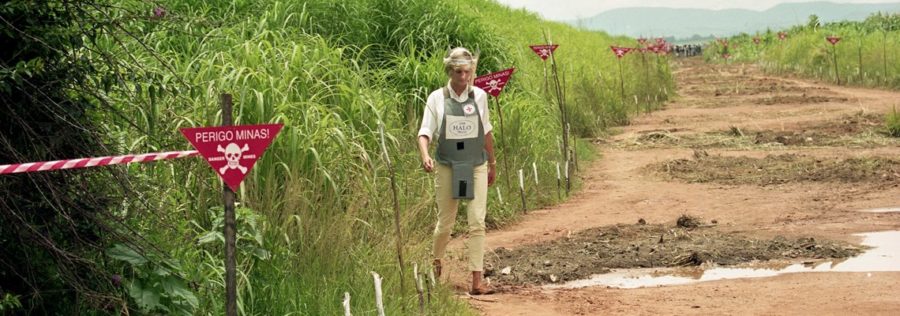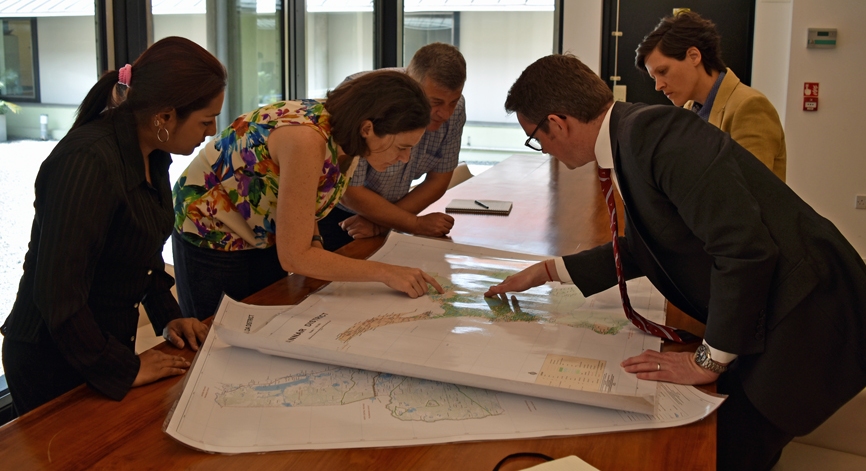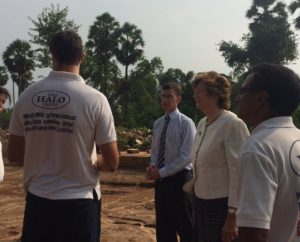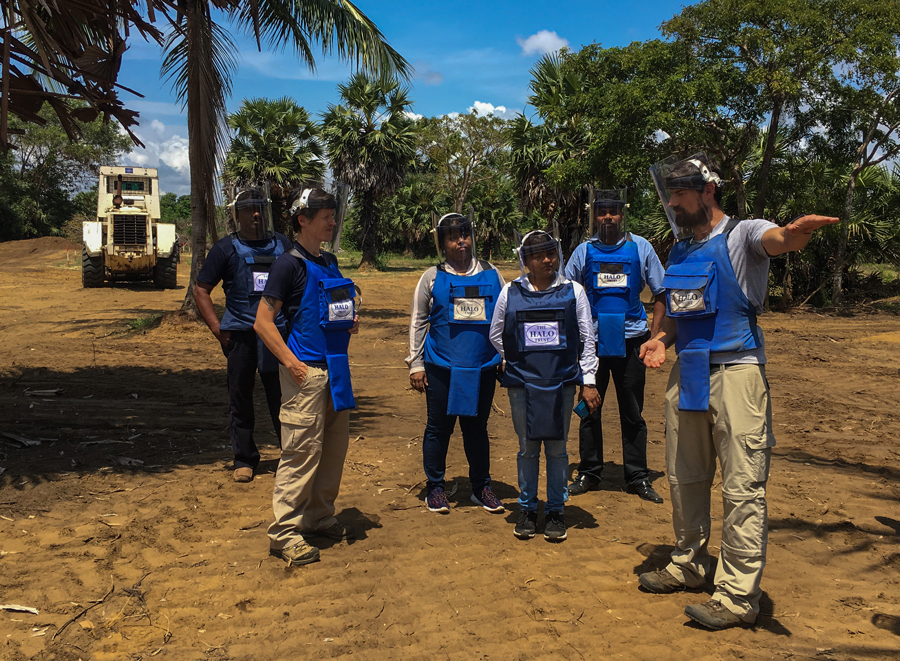4th April 2017 Colombo, Sri Lanka
Digging up the legacy of war

It’s 20 years since Princess Diana walked through a minefield in Angola and changed the way we think about land mines. And it’s 20 years since the Ottawa Convention banning their use was concluded. But mines and unexploded ordnance still cause indiscriminate destruction and hinder development in over 63 countries and territories around the world – long after the guns stopped firing.
Sri Lanka is of course one of these countries. In fact, by the end of the conflict, over 500km2 of land was contaminated by landmines.
That’s why the British High Commission in Colombo has been funding demining work in Sri Lanka since 2010. Between 2010 and 2019, we will have spent over £6.2 million (over LKR 1.2 billion) on demining all across the North and East of Sri Lanka. Working mostly through our partners, The HALO Trust, we intend to clear more than 600,000m2 of land between 2016 and 2019, making it safe for people to move home and start cultivating their land again

During her recent visit to Sri Lanka, UK Minister Baroness Anelay met individuals directly impacted by mines in the North. “Demining is essential to ensure the safety of those returning to their homes and land following the conflict. It is important for displaced people to return as soon as possible in order to rebuild their lives,” she said.
Both of the UK’s largest de-mining charities are active in Sri Lanka: The HALO Trust and Mines Advisory Group. In 2016, through UK funding, HALO removed 19,215 mines and other unexploded ordinance from the areas in which they were working. Last December, HALO celebrated the removal of its 200,000th mine from Sri Lankan soil up in Muhamalai. Since then, they have removed a further 18,000. Several parts of Sri Lanka, in particular around Batticaloa, are tantalisingly close to being declared mine-impact free.

Fiona Kilpatrick, HALO’s Sri Lanka Country Manager explains: “Northern Sri Lanka remains one of the most densely mined areas in the world. The mass displacement of Tamils at different stages of the war and the rate at which cleared land is returned to economically productive use means that the number of beneficiaries and the impact of mine clearance are exceptionally high. But the scale of the mines and explosive remnants of war problem is still considerable. Sri Lanka is on the verge of becoming mine impact-free and every inch of every minefield will be cleared systematically before that land, free from mines, can be handed back to those who were forced to leave it so long ago”.
That’s what makes demining so compelling as part of the UK’s wider commitment to reconciliation and peace-building in Sri Lanka. Not only does it offer immediate humanitarian benefits, but it also accelerates recovery from conflict. Families can live, farm and play without fear. In the short term, it also offers employment opportunities to some of the most vulnerable. Over 44% of the staff employed in our project with The HALO Trust are female, and almost 100% were displaced during the conflict, losing their homes and assets in the process. Many of the mines are still cleared by hand due to the difficulty of the terrain. As I have seen for myself it is painstaking, uncomfortable and dangerous work.

Recently, two of my colleagues travelled to Muhamalai, Jaffna, to hear from deminers there about the progress they are making. Deputy Programme Manager Chanuki explains, “We saw a vast area of productive land that could not be used for livelihoods due to the high density of mines. Teams of HALO deminers were meticulously clearing their way through land to be released for occupation. We met families, and many female headed households, living in temporary shelters and concerned about sustainable income, access to facilities and rebuilding communities.”
The government of Sri Lanka has set itself 2020 as a target for the whole of Sri Lanka being mine impact free. We will be with them every step of the way, supporting the achievement of that target and encouraging the government to mark it by becoming a signatory to the Ottawa Convention.
Read more about our demining work in Sri Lanka:
Clearing the way home: a blog for International Mine Action Day